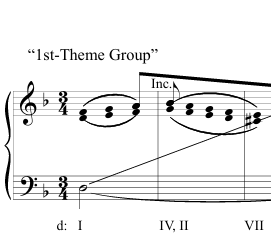Every music theorist has roots. Mine go back to piano studies as a young child in Jerusalem with Dalia Cohen and later Benjamin Oren, and the encounter in the United States as a young adult with the hierarchical thinking of Heinrich Schenker, through studies with the eminent theorists Ernst Oster and Carl Schachter. The Schenkerian approach is since inseparable from my musical being, regardless of whether I criticize it, for example, in the article “The Bridges that Never Were: Schenker on the Contrapuntal Origin of the Triad and Seventh Chord,” or give it renewed interpretation as in the article “The Webern in Mozart: Systems of Chromatic Harmony and Their Twelve-Tone Content.”
One cannot mention Schenker today without mentioning his supposed “racism,” an issue that came to the forefront especially following the 2020 article of Philip Ewell, “Music Theory and the White Racial Frame.” In August 2022, I organized a symposium at the Aldwell Institute in Jerusalem entitled “Schenker and Schenkerian Analysis: New Directions.” The keynote speaker was Barry Wiener, a researcher who responded comprehensively to Ewell’s accusations in “Race, Nation, and Jewish Identity in the Thought of Heinrich Schenker,” an article published by G. Olms (2022) in the collection New Horizons in Schenkerian Research, edited by Allen Cadwallader et al. Haaretz covered the symposium under the title “Why is Heinrich Schenker Admired and Why is He Slandered as a Racist?”

